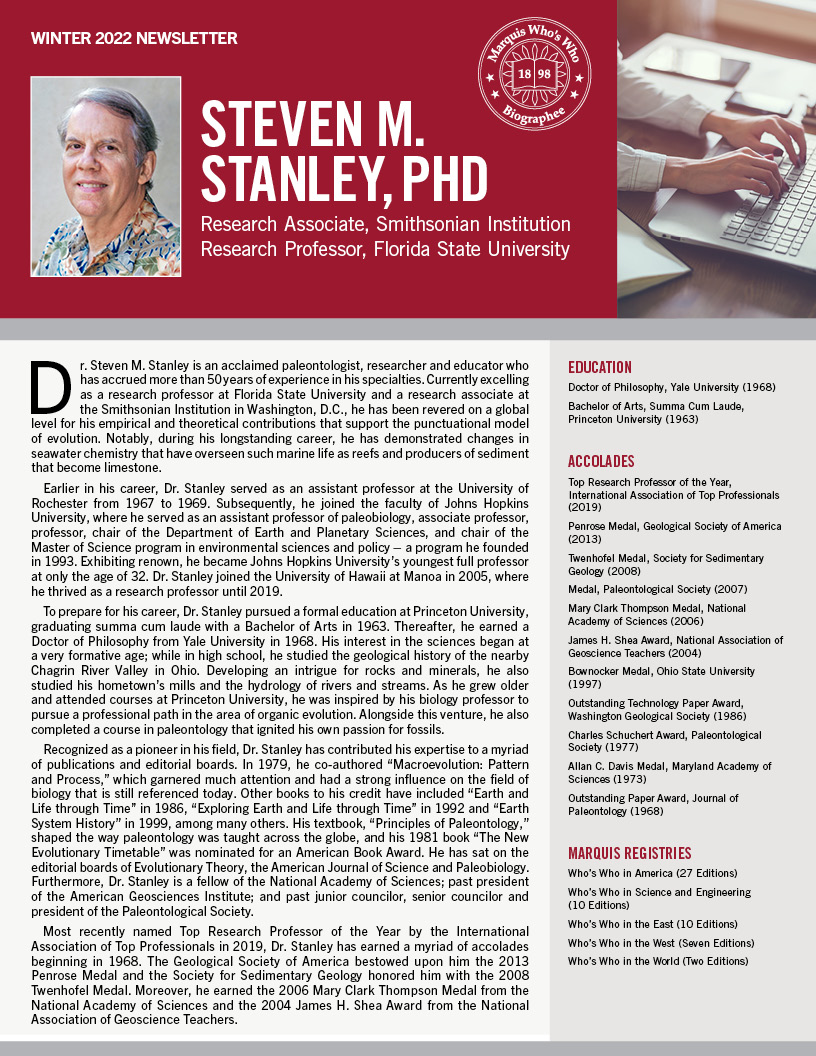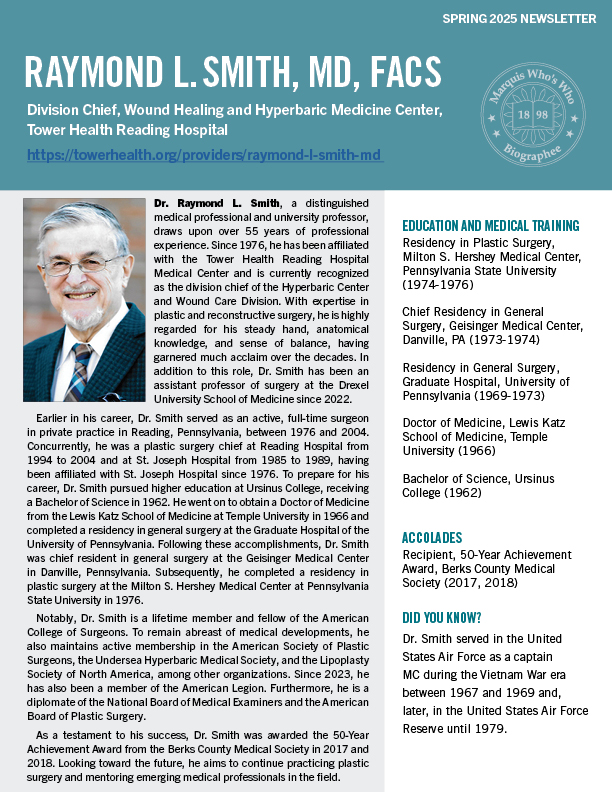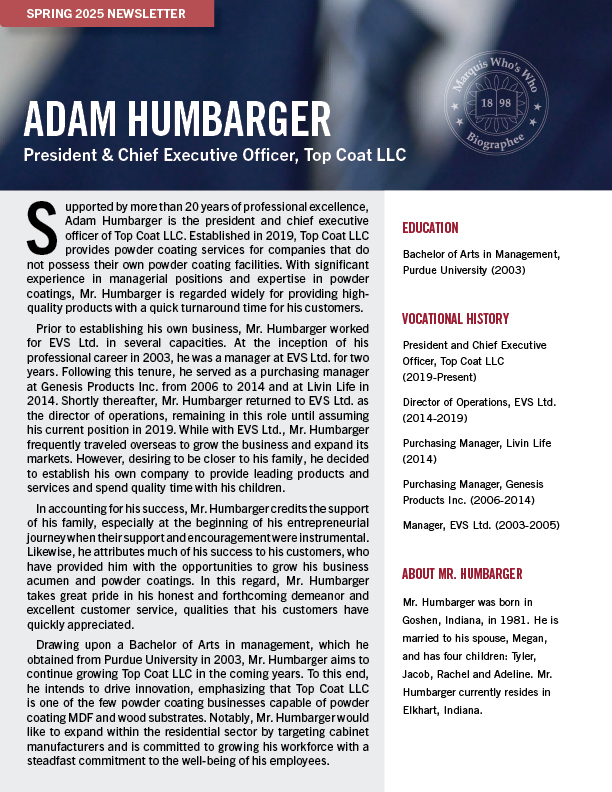
Dr. Steven M. Stanley is an acclaimed paleontologist, researcher and educator who has accrued more than 50 years of experience in his specialties. Currently excelling as a research professor at Florida State University and a research associate at the Smithsonian Institution in Washington, D.C., he has been revered on a global level for his empirical and theoretical contributions that support the punctuational model of evolution. Notably, during his longstanding career, he has demonstrated changes in seawater chemistry that have overseen such marine life as reefs and producers of sediment that become limestone.
Earlier in his career, Dr. Stanley served as an assistant professor at the University of Rochester from 1967 to 1969. Subsequently, he joined the faculty of Johns Hopkins University, where he served as an assistant professor of paleobiology, associate professor, professor, chair of the Department of Earth and Planetary Sciences, and chair of the Master of Science program in environmental sciences and policy – a program he founded in 1993. Exhibiting renown, he became Johns Hopkins University’s youngest full professor at only the age of 32. Dr. Stanley joined the University of Hawaii at Manoa in 2005, where he thrived as a research professor until 2019.
To prepare for his career, Dr. Stanley pursued a formal education at Princeton University, graduating summa cum laude with a Bachelor of Arts in 1963. Thereafter, he earned a Doctor of Philosophy from Yale University in 1968. His interest in the sciences began at a very formative age; while in high school, he studied the geological history of the nearby Chagrin River Valley in Ohio. Developing an intrigue for rocks and minerals, he also studied his hometown’s mills and the hydrology of rivers and streams. As he grew older and attended courses at Princeton University, he was inspired by his biology professor to pursue a professional path in the area of organic evolution. Alongside this venture, he also completed a course in paleontology that ignited his own passion for fossils.
Recognized as a pioneer in his field, Dr. Stanley has contributed his expertise to a myriad of publications and editorial boards. In 1979, he co authored �??�Macroevolution: Pattern and Process,” which garnered much attention and had a strong influence on the field of biology that is still referenced today. Other books to his credit have included “Earth and Life through Time” in 1986, “Exploring Earth and Life through Time” in 1992 and “Earth System History” in 1999, among many others. His textbook, “Principles of Paleontology,” shaped the way paleontology was taught across the globe, and his 1981 book “The New Evolutionary Timetable” was nominated for an American Book Award. He has sat on the editorial boards of Evolutionary Theory, the American Journal of Science and Paleobiology. Furthermore, Dr. Stanley is a fellow of the National Academy of Sciences; past president of the American Geosciences Institute; and past junior councilor, senior councilor and president of the Paleontological Society.
Most recently named Top Research Professor of the Year by the International Association of Top Professionals in 2019, Dr. Stanley has earned a myriad of accolades beginning in 1968. The Geological Society of America bestowed upon him the 2013 Penrose Medal and the Society for Sedimentary Geology honored him with the 2008 Twenhofel Medal. Moreover, he earned the 2006 Mary Clark Thompson Medal from the National Academy of Sciences and the 2004 James H. Shea Award from the National Association of Geoscience Teachers.


